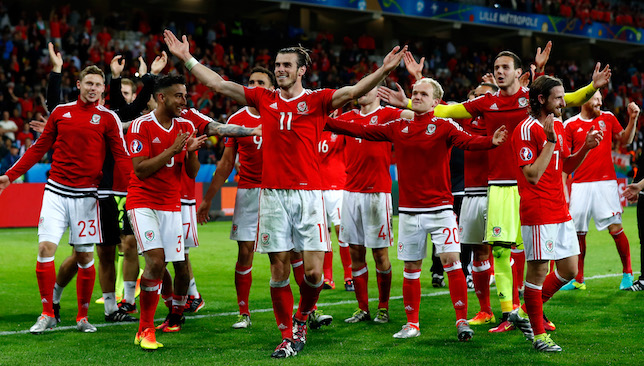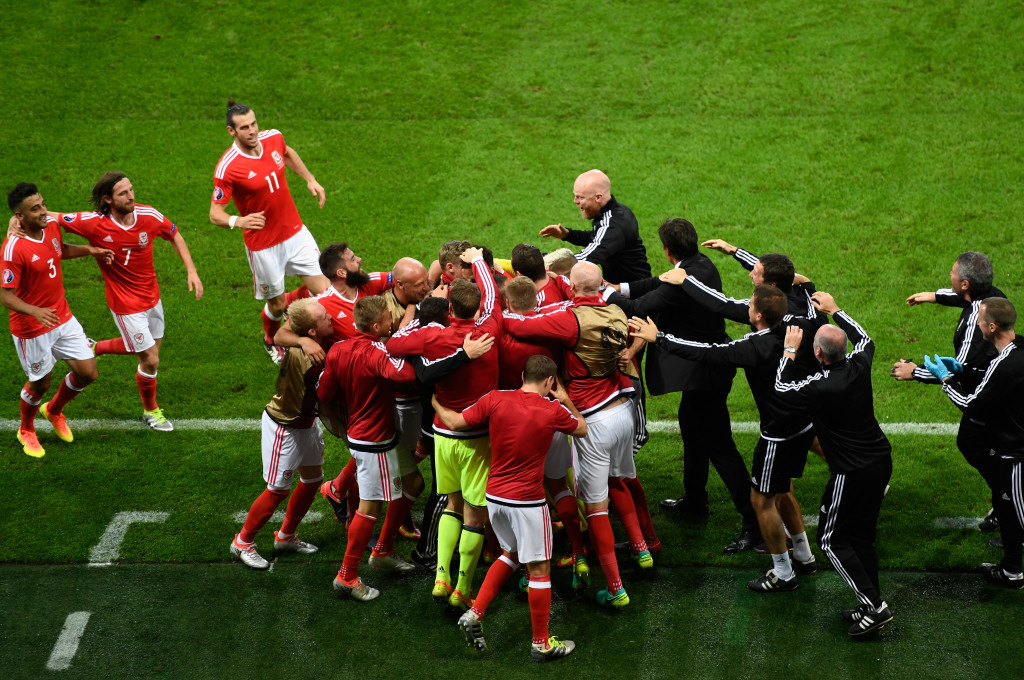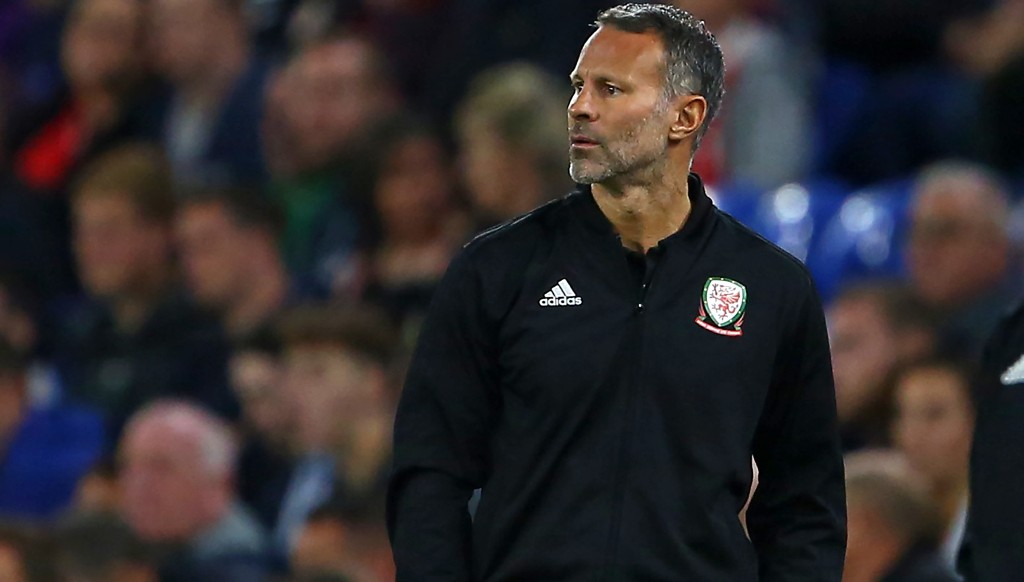
Wales versus Slovakia doesn’t immediately strike you as one of the glamour fixtures of international football but it is one that carries so much significance and brings back fond and historic memories for Welsh fans.
The central European nation is known for its national parks, possessing the most castles and chateaux per capita in the world and being home to more than 6,000 caves. But for Wales, Slovakia will forever represent the realisation they had made it back to international football’s grand stage after more than half a century roaming the wilderness.
Slovakia is where their magical journey to the European Championship semi-finals three-and-a-half years ago all started.
For many fans bedecked in red, who had been starved of success or even a sliver of joy over the last half a century, just having three games of football to watch in the summer of 2016 would have been enough.
Not since Sweden in 1958 had fans devoted to the Dragons dared to dream that their heroes would hit such heights and grace the elite arenas of international football once again.
John Charles, brothers Len and Ivor Allchurch, Cliff Jones, Terry Medwin and Jack Kelsey are revered figures in Welsh football folklore.

Wales players and staff celebrate a truly memorable goal by Hal Robson-Kanu to put them 2-1 up against Belgium.
Unbelievable players in their own right, yet associated with the countless failures of generations that followed them as much as they are celebrated for their own feats and talents.
The continued inability of fine teams containing Ryan Giggs, Ian Rush, John Toshack, Neville Southall, Gary Speed, Trevor Ford, Mark Hughes, Leighton James, Brian Flynn, Terry Yorath, Mickey Thomas and Alan Curtis to make major finals only served to extol the legend of the class of ’58.
These players and their teams came close to emulating Charles – arguably Wales’ greatest ever player – and his contemporaries.
They were the width of a crossbar from qualifying for World Cup 94 in the United States. Wales needed to beat Romania in their final Group 4 game at the Cardiff Arms Park and were level at 1-1 when Paul Bodin smashed his spot-kick against the frame of the goal. AC Milan striker Florin Raducioiu’s 83rd minute winner sent the Dragons down in flames.
They rose from the ashes to the brink of qualifying for Euro 2004. They made the play-offs after finishing runners-up to Italy – memorably beating the Azzurri 2-1 at the Millennium Stadium, one of the nation’s finest ever results.
Things looked promising when they drew the first leg 0-0 in Moscow against Russia, but they were then beaten 1-0 at home.
The tie is remembered particularly bitterly for the fact Wales tried, and failed, three times, to get Russia thrown out because midfielder Igor Titov failed a drug test after the first leg and played in the second. The Court of Arbitration for Sport dismissed their case.
But they were never able to tread in the same gargantuan footsteps as Leeds United and Juventus great Charles, the man known as Il Gigante Buono – The Gentle Giant – following his five-year tenure in Turin.
From the 'worst international performance' to Euro 2016 success
— BBC Sport Wales (@BBCSportWales) 22 March 2019
Relive the highs and low of Wales' encounters with Sunday's opponents, Slovakia
️⚽️ https://t.co/trF0uemjll pic.twitter.com/4rdDvB9L86
However, that all changed three summers ago. Little did those fans pouring across the English Channel into France realise it ahead of the June 11 Group B opener against Slovakia, but that glorious run to the World Cup quarter-finals 58 years earlier – they were knocked out 1-0 by behemoths Brazil and an inspired performance from a little-known 17-year-old named Pele, who scored the decisive goal (the first of six in a three-game span including a hat-trick in the semi and brace in the final) – was about to be surpassed over the next few weeks.
From that opening game in Bordeaux – Gareth Bale’s thumping free-kick to give the Dragons the lead, Ben Davies’ sublime goal-line clearance to deny Marek Hamsik and Hal Robson-Kanu’s scuffed 80th minute winner – there was magic in the air for Wales.
Bale scored again against England although the Three Lions came back to win 2-1. It mattered little, an Aaron Ramsey-inspired Wales tore Russia to shreds in their final group game, Bale scoring again in a dominant 3-0 win.
They faced another home nation in the last 16 and edged past Northern Ireland thanks to Gareth McCauley’s own goal. Then came their zenith – blitzing pre-tournament favourites Belgium in Lille, having gone a goal behind, Robson-Kanu channeling his inner Lionel Messi to score a stunning goal in a defining 3-1 win.
Entering the semi-finals saw them eclipse the achievements of Charles and Co nearly six decades earlier and, even though the last four proved a step too far, the real dream had been achieved. And demons laid to rest.
Circumstances and expectations have certainly changed dramatically since then. Failure to follow their Euro 2016 heroics with qualification to last summer’s World Cup in Russia was met with bitter disappointment and frustration, rather than begrudging acceptance and feigned sadness that Welsh fans had become accustomed to at the culmination of so many other failed World Cup and European Championship qualifying campaigns over the last 60 years.
After his appointment a year ago was greeted with optimism and excitement, especially after a 6-0 hammering of the hosts at the China Cup, the honeymoon period is well and truly over for manager Ryan Giggs.
Four wins, five defeats and a draw doesn’t exactly scream progress, on paper at least. But let’s remember that among those defeats were losses against experienced World Cup campaigners Uruguay (1-0), a home humbling in a friendly last October against mighty Spain (4-1) who had David De Gea, Sergio Ramos and two-goal Paco Alcacer in their starting XI. As well as a pair of Nations League defeats to Denmark – who made the last 16 in Russia.
The one true low note of Giggs’ reign so far was the embarrassing 1-0 loss to Albania last November.
Even though the acid test now presents itself in the form of Euro 2020 qualifying Giggs, just like his predecessors, and former players he called team-mates – Chris Coleman and Gary Speed – still needs time.

Giggs’ Wales reign has got off to a steady start.
He must be commended for introducing a new, exciting generation to international football – chief among them Harry Wilson, Ben Woodburn, Ethan Ampadu, Connor Roberts, Tyler Roberts, Chris Mepham, Daniel James and David Brooks. The Bournemouth forward picked up both the Player of the Year and Young Player of the Year accolades at the Football Association of Wales Awards on Thursday, the first to win both in a single year.
Look back at Speed’s 10 games in charge: five defeats, five wins. Coleman’s first 10: seven defeats (including five straight to kick off his reign), three wins. And both of them helped change the course of history for the nation. Patience and a true belief in the Wales motto from Euro 2016 – #TogetherStronger – is required.
And so then to Sunday, and Slovakia. Memories of that sweet summer of 2016 will come flooding back for everyone who was there and countless more who watched back home and from afar.
There will be a lot of reminiscing, recollections and reflecting. But Giggs and the nation must now look forward.